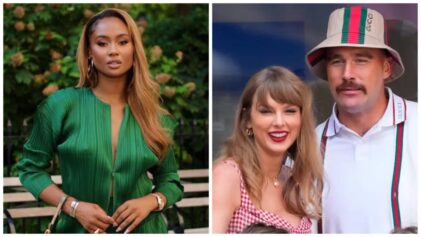UPDATE-Taylor Swift will join the ranks of celebrities who have been touched by the heavy hand of Photo Shop.
In an effort to exaggerate the effect of their NatureLuxe Mousse Mascara, Covergirl decided it was smart to enhance Taylor’s eyelash, you know, for the full effect. Except their actions completely defeat the purpose!
Earlier this year Lancôme was also in the hot seat for photo shopping ad’s featuring actress Julia Roberts and model Christy Turlington. UK’s version of the NAD, the ASA or Advertising Standards Authority, reacted by banning the ads entirely.
So you would think Covergirl would try their best to keep their models as natural as possible. Nope, no chance. Covergirl was slammed by not only their customers but also consumer watch dog groups like the NAD (National Advertising Division).
Now everyone is aware that almost every form of print advertising is somewhat photoshopped. However, the issue with doing so for cosmetic ads is that many of products they attempt to sell a promise to improve or enhance a woman’s appearance with prolonged use. Photoshopping these images only makes such advertisements appear misleading in its overall intent.
Covergirl did add a small verbiage at the bottom of the ad admitting Taylor’s image was slightly enhanced. However, this didn’t help ease public concern as Andrea Levine, director of the NAD, issued the following statement to Business Insider;
“You can’t use a photograph to demonstrate how a cosmetic will look after it is applied to a woman’s face and then, in the mice type, have a disclosure that says ‘okay, not really.'”
The National Advertising Division later demanded proof that the mascara did in fact add two times more volume to eyelashes and was 20 percent lighter as the advertising claimed. Parent company Proctor and Gamble soon responded by removing the ad…which should clearly answer’s that question. No word yet from Taylor Swift’s camp regarding whether she supports the move.

